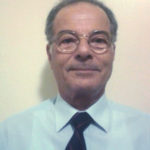Course details
General
| Faculty | Health Sciences | ||
| Department | Medicine | ||
| Education level | Postgraduate / Master of Science | ||
| Course code | PMHRA003 | Semester | 1 |
| Course title | Reproductive Genetics & Stem Cells | ||
| Independent teaching activities | Hours per week | ECTS | |
| Lectures | 1 | ||
| Practice | 3 | ||
| Total | 4 | 5 | |
| Coursetype | General setting course, skills development | ||
| Prerequisite courses | None | ||
| Teaching and assessment language | English | ||
| Course URL | Reproductive Genetics and Stem Cells | ||
Learning outcomes
Aim
The MSc – Medical Genetics & Stem Cells offers training to medical, biomedical and biological scientists for careers in clinical and in vitro molecular diagnosis. Upon completion of the course, graduate of the course will know the basic principles of Medical Genetics and will be able to suggest basic / molecular diagnostic approach at the level of every day clinical act.
Knowledge
Upon completion of the course, graduate students will be familiar with:
- Basic principles of DNA & RNA analysis
- Basic Principles of Genetic Counseling
- Basic Principles of isolation and usage of stem cells
Skills
The course participants upon completion will be able to:
- Evaluate and select the appropriate diagnostic test based on sensitivity and specificity.
- Assess and solve complex genetic advisory problems
- Search and process primary and secondary data from reliable sources
- Validate and apply data to reach conclusions.
Syllabus
- Introduction to DNA analysis
- Advanced DNA analysis techniques
- Gene expression in analysis of infertility
- Non-coding RNAs
- Assisted reproduction and epigenetic modifications and concerns
- Karyotype analysis and Infertility
- Genetic counseling – management of genetic syndromes
- Stem cells, Infertility and Reproduction
Teaching and learning methods – evaluation
| Teaching methods | Face to face Distance learning |
|
| Use of information and communication technologies (ICT) |
|
|
| Module structure | Activity | Work Hours per Semester |
| Lectures | 40 | |
| Exercises (Quiz) | 10 | |
| Exercises (Online discussion fora) | 25 | |
| Exercises (Study relevant papers) | 20 | |
| Essay writing | 30 | |
| Overall work for the course | 125 | |
| Assessment Methods |
|
|
Recommended Bibliography
- Foka ZJ, Lambropoulos AF, Saravelos H, Karas GB, Karavida A, Agorastos T, Zournatzi V, Makris PE, Bontis J, Kotsis A. Factor V leiden and prothrombin G20210A mutations, but not methylenetetrahydrofolate reductase C677T, are associated with recurrent miscarriages. Hum Reprod. 2000 Feb;15(2):458-62.
- Giannouli C1, Goulis DG, Lambropoulos A, Lissens W, Tarlatzis BC, Bontis JN, Papadimas J.Idiopathic non-obstructive azoospermia or severe oligozoospermia: a cross-sectional study in 61 Greek men. Int J Androl. 2004 Apr;27(2):101-7.
- Stahl PJ1, Schlegel PN. Genetic evaluation of the azoospermic or severely oligozoospermic male.Curr Opin Obstet Gynecol. 2012 Aug;24(4):221-8.
- Neda Heydarian, Raha Favaedi, Mohammad Ali Sadighi Gilani, and Maryam Shahhoseini. Expression level of chromodomain Y (CDY): potential marker for prediction of sperm recovery in non-obstructive azoospermia Int J Reprod Biomed (Yazd). 2016 Jun; 14(6): 383–388.
- Fonda Allen J, Stoll K, Bernhardt BA. Pre- and post-test genetic counseling for chromosomal and Mendelian disorders. Semin Perinatol. 2016;40: 44-55.
- Asim A, Kumar A, Muthuswamy S, Jain S, Agarwal S. “Down syndrome: an insight of the disease”. J Biomed Sci. 2015; 22:41.
- Whidden L, Martel J, Rahimi S, Richard Chaillet J, Chan D, Trasler JM.Compromised oocyte quality and assisted reproduction contribute to sex-specific effects on offspring outcomes and epigenetic patterning. Hum Mol Genet. 2016 Aug 29
- Tenorio J, Romanelli V, Martin-Trujillo A, Fernández GM, Segovia M, Perandones C, Pérez Jurado LA, Esteller M, Fraga M, Arias P, Gordo G, Dapía I, Mena R, Palomares M, Pérez de Nanclares G, Nevado J, García-Miñaur S, Santos-Simarro F, Martinez-Glez V, Vallespín E; SOGRI Consortium, Monk D, Lapunzina P. Clinical and molecular analyses of Beckwith-Wiedemann syndrome: Comparison between spontaneous conception and assisted reproduction techniques. Am J Med Genet A. 2016 Oct;170(10):2740-9.
- Choux C, Carmignac V, Bruno C, Sagot P, Vaiman D, Fauque P.
The placenta: phenotypic and epigenetic modifications induced by Assisted Reproductive Technologies throughout pregnancy.
Clin Epigenetics. 2015 Aug 21;7:87. - Uyar A, Seli E. The impact of assisted reproductive technologies on genomic imprinting and imprinting disorders. Curr Opin Obstet Gynecol. 2014 Jun;26(3):210-21.
- S. Chantot-Bastarand, C. Ravel, JP Siffroi. Underlying karyotype abnormalities in IVF/ICSI patients. Reproductive Biomedicine Online, volume 16, issue 4, 2008, pages 514-522
- E. Clementini, C. Palka, I. Iezzi, L. Stuppia, P. Guanciali-Franchi and G.M.Tiboni. Prevalence of chromosomal abnormalities in 2078 infertile couples referred for assisted reproductive techniques. Human Reproduction, Vol 20, No 2, pp. 437-442, 2005



